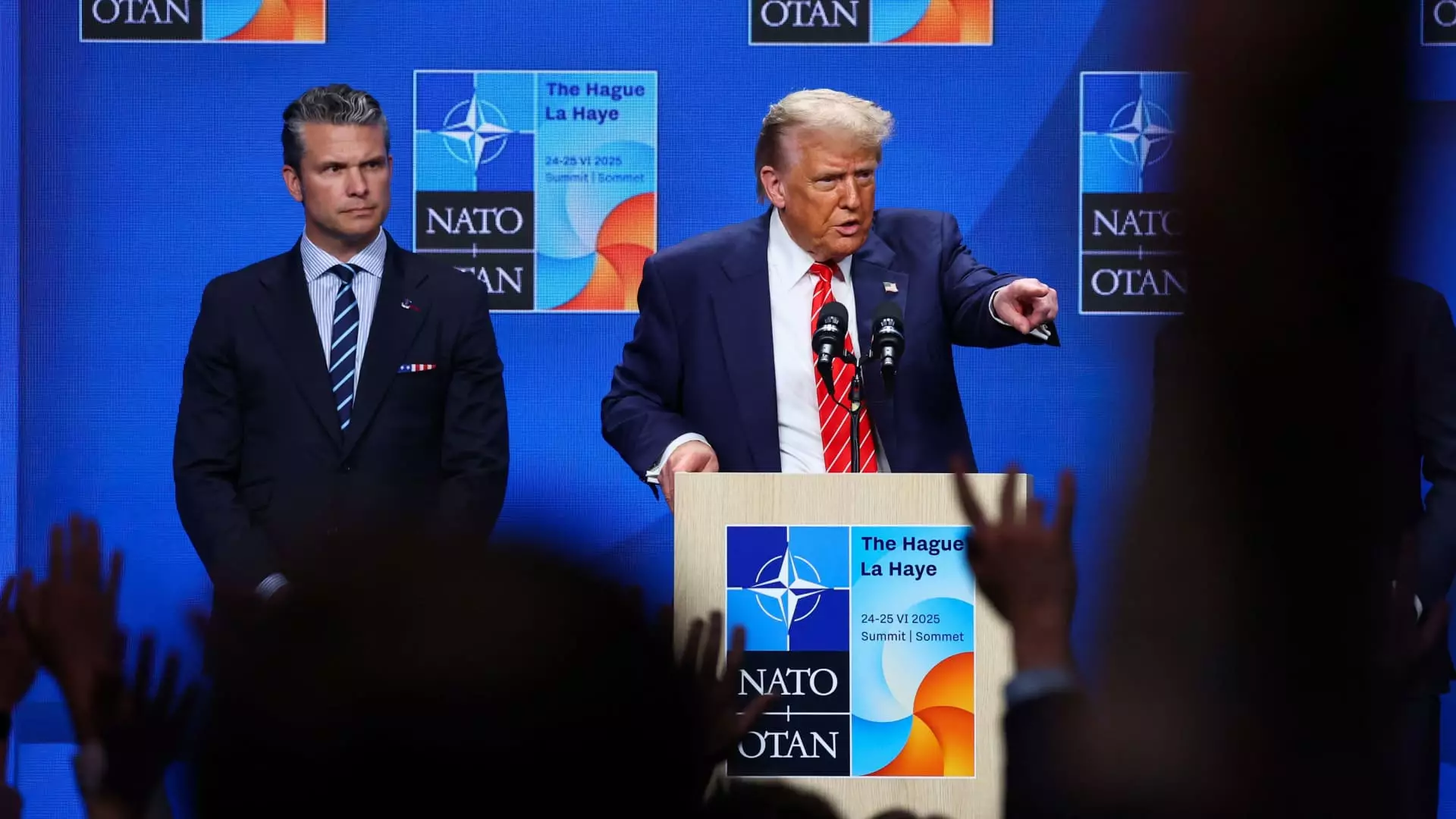In the swirling maelstrom of international relations, the recent statement made by former President Donald Trump—a bold declaration that U.S. airstrikes have “totally obliterated” Iran’s nuclear capabilities—exemplifies a fragile narrative politicking at its peak. His assertion, made amidst the backdrop of a NATO summit, appears to paint a grand picture of military triumph, but a closer examination exposes significant cracks in this bravado-laden façade.
An initial intelligence report released by the U.S. Defense Intelligence Agency suggests that the impact of these airstrikes is far from the complete annihilation touted by Trump and key defense officials. According to assessments that have unearthed themselves through various media channels, the American strikes simply delayed Iran’s nuclear ambitions for a matter of months—not years as one might expect from an operation described in such victorious terms. Such a dissonance between claimed victories and on-the-ground realities reveals a troubling disconnect that ought to concern us all.
Intelligence vs. Bluster
What emerges from this scenario is a classic case of what can be termed “intelligence bluster.” While national defense and security can often necessitate a degree of secrecy, the alarming tendency to prioritize political measurements over strategic realities can have serious ramifications. Trump himself has openly dismissed the preliminary assessments—objecting to the timing of their releases and labeling them as incomplete. This raises questions not merely about the accuracy of intelligence but also about the administration’s overarching strategy toward Iran.
Trump’s dismissive remarks insinuate that the evaluators failed to grasp the situation—a point that warrants further scrutiny. If intelligence reports are to be rendered irrelevant by the whims of political narratives, then who do we rely on for objective assessments? This reliance, or lack thereof, on the intelligence community does not merely undermine their credibility; it hampers crucial decision-making processes at the highest levels.
The Fallout: A Showdown with Reality
Equally troubling is the reaction from the Trump administration, characterized by blatant hostility towards those expressing caution about the results of the airstrikes. Press Secretary Karoline Leavitt’s inflammatory rhetoric against anonymous intelligence sources indicates an environment resistant to constructive critique. When the federal government becomes a hostile entity toward dissenting views within its ranks, it threatens to foster a culture of conformity over honesty—an environment where catastrophic miscalculations like those regarding Iran’s nuclear program seem more plausible.
Defense Secretary Pete Hegseth’s vehement insistence that the strikes were transformative, coupled with statements suggesting that any detractor is undermining the president, illustrates a broader tactic: denouncing dissent. Such responses create a chilling atmosphere in which ideas are not debated but attacked. This is troubling, particularly in matters of national security, where misrepresentation can endanger lives and geopolitical stability.
Political Implications and Public Confidence
The ramifications of this situation stretch beyond immediate foreign policy considerations. The lack of transparency and consistency from the former administration raises profound concerns about public confidence in the military and intelligence communities. If critical assessments and their implications are downplayed in favor of political narratives, what message does that send to both domestic and international observers?
Inquiries and briefings scheduled for Congress members were abruptly postponed, fostering further suspicion regarding the administration’s motivations. It creates a ripple effect—causing unease and skepticism not just within government ranks but also among the American populace, who depend on these institutions to provide checks on power and safeguard their interests.
The focus should transcend mere media criticism; it ventures into the realm of ethical governance. Accountability in leadership, especially concerning national security, should be uncompromisingly upheld and prioritized over rhetoric. If this administration, and any other, disdains empirical analysis in favor of politically comforting narratives, we may face an unmanageable erosion of the mechanisms that defend our national interests. The stakes are simply too high to allow for any ounce of complacency in the unfolding geopolitical theater surrounding Iran.


Leave a Reply